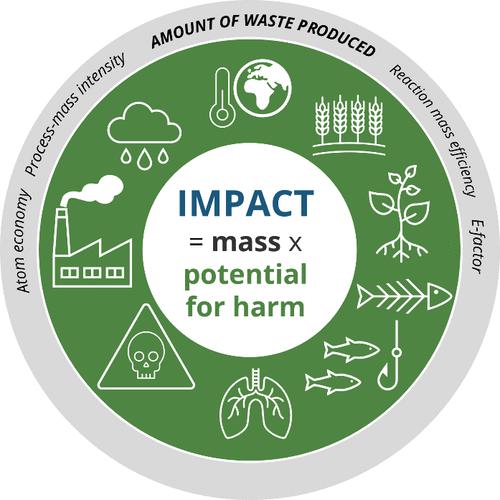当前位置:
X-MOL 学术
›
J. Chem. Educ.
›
论文详情
Our official English website, www.x-mol.net, welcomes your feedback! (Note: you will need to create a separate account there.)
Integrating Simple Environmental Impact-Based Metrics into the Undergraduate Curriculum
Journal of Chemical Education ( IF 3 ) Pub Date : 2024-03-12 , DOI: 10.1021/acs.jchemed.3c01217 Jackson de Verteuil 1 , Philip G. Jessop 1 , Amanda Bongers 1
Journal of Chemical Education ( IF 3 ) Pub Date : 2024-03-12 , DOI: 10.1021/acs.jchemed.3c01217 Jackson de Verteuil 1 , Philip G. Jessop 1 , Amanda Bongers 1
Affiliation

|
The most important learning objective in green chemistry education is the ability to identify the synthesis, process, or chemical that is least environmentally harmful. Existing metrics fall short for different reasons. Mass-based metrics fail to assess environmental harm, while life cycle assessment (LCA) is much too complex to insert into the existing curriculum without displacing a significant amount of content. However, individual environmental impact-based metrics derived from LCA can be easily incorporated into the curriculum with very little instruction time and no significant displacement of content. For first year or introductory chemistry, we show how typical first-year calculation questions can be expanded to allow students to use an impact-based metric to identify the least harmful of the presented options. For upper-year courses, we propose an activity that scaffolds the LCA process of compiling data, calculating individual impact-based metrics, combining metrics, and using context to make a decision. This activity was implemented using a problem-based learning model to support multivariate reasoning through peer discussions.
中文翻译:

将简单的基于环境影响的指标纳入本科课程
绿色化学教育中最重要的学习目标是识别对环境危害最小的合成、过程或化学品的能力。现有的指标由于不同的原因而达不到要求。基于质量的指标无法评估环境危害,而生命周期评估(LCA)过于复杂,无法在不取代大量内容的情况下插入现有课程。然而,从 LCA 得出的基于个人环境影响的指标可以轻松地纳入课程中,只需很少的教学时间,并且内容不会发生重大变化。对于第一年或入门化学,我们展示了如何扩展典型的第一年计算问题,以允许学生使用基于影响的指标来识别所提供选项中危害最小的。对于高年级课程,我们提出了一项活动,支持编译数据、计算基于影响的个人指标、组合指标以及使用上下文做出决策的 LCA 流程。这项活动是使用基于问题的学习模型来实施的,以通过同行讨论支持多元推理。
更新日期:2024-03-12
中文翻译:

将简单的基于环境影响的指标纳入本科课程
绿色化学教育中最重要的学习目标是识别对环境危害最小的合成、过程或化学品的能力。现有的指标由于不同的原因而达不到要求。基于质量的指标无法评估环境危害,而生命周期评估(LCA)过于复杂,无法在不取代大量内容的情况下插入现有课程。然而,从 LCA 得出的基于个人环境影响的指标可以轻松地纳入课程中,只需很少的教学时间,并且内容不会发生重大变化。对于第一年或入门化学,我们展示了如何扩展典型的第一年计算问题,以允许学生使用基于影响的指标来识别所提供选项中危害最小的。对于高年级课程,我们提出了一项活动,支持编译数据、计算基于影响的个人指标、组合指标以及使用上下文做出决策的 LCA 流程。这项活动是使用基于问题的学习模型来实施的,以通过同行讨论支持多元推理。



























 京公网安备 11010802027423号
京公网安备 11010802027423号